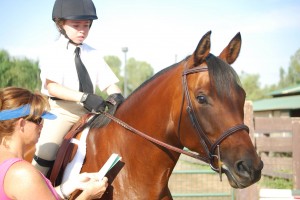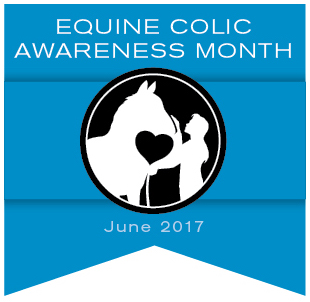 My story begins when my son was ten years old. He was diagnosed with ADHD and with a Mood Disorder. Lacking in the ability to empathize with animals or children, I thought what better way than to learn these abilities than with a horse.
My story begins when my son was ten years old. He was diagnosed with ADHD and with a Mood Disorder. Lacking in the ability to empathize with animals or children, I thought what better way than to learn these abilities than with a horse.
For my son, it was love at first sight. Immediately, Sakura dropped her head into my small ten year old’s hands and together they learned to be a team. My son being into Anime chose her name, which means Cherry Blossom in Japanese.
Allergic Reaction Causes Colic
Four years later, late in May 2012, I changed my normal brand of wormer and Sakura colicked. Having moved from Norco, California to El Paso, Texas; sand colic is prevalent and she was treated accordingly by our vet. Her colic was so severe at one point, we were considering to euthanize. However, by the grace of God, good veterinarian care and love, she survived and bounced back to full recovery within days.
Six weeks later, we noticed she was passing pen worms so we used the same wormer as before not knowing she would have another allergic reaction and colic again. Because we knew what the underlining cause was, Sakura was immediately given fluids to flush the toxins but was not tubed as before. The colic was less severe, but she didn’t bounce back as quickly.
For the first few days after the second colic, Sakura showed little interest in water and started dropping weight at an amazing rate. Within the week, she started drinking too much to soothe herself. Within three weeks, she was in such poor physical condition her ribs and spinal column were exposed and she was sunken in on her flanks. Sakura was also showing signs of tenderness along her girth area, flank area, rear spinal area and was grinding her teeth in discomfort.
Testing Positive for Colonic Ulcers
My vet recommended we run a test for colonic ulcers. The test came back positive. Along with a digestive supplement, Sakura was given a grass diet with wet pellets to provide the protein robbed from the ulcer. Along with this, we increased her beet pulp, rice bran and continued her monthly psyllium.
Seven months later, our vet came out again to retake the ulcer test and I am happy to announce that she is negative for colonic ulcers and is at a healthy weight. My beloved horse is happier and healthier and we are forever grateful.
At fifteen, my son does not ride her as often but he loves her regardless therefore we are a success story and I will love her for the gift she gave my son.
The Crusade Against Equine Colic thanks Kim for sharing her colic story. Kim is a candidate for the Equine Colic Awareness Month Spokes-Horse Contest.







While excessive stomach acid secretion certainly plays a role in the development of ulcers, a relatively recent theory holds that bacterial infection is the primary cause of peptic ulcers. Indeed, research conducted since the mid-1980s has persuasively demonstrated that the bacterium Helicobacter pylori (H. pylori) is present in more than 90% of duodenal ulcers and about 80% of stomach ulcers.’;,:
My personal blog site <http://picturesofherpes.co/